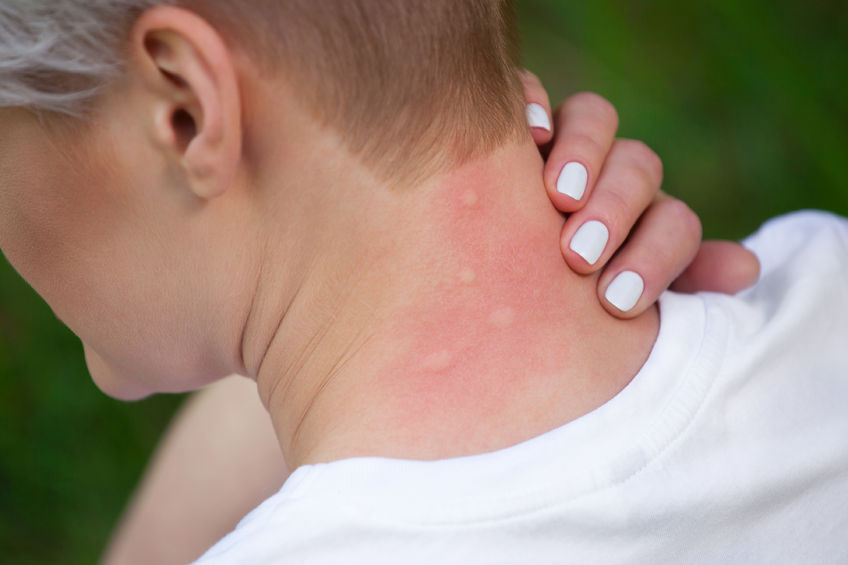Insect bites or stings during the summer months are often an inevitable side effect of spending time outdoors. Here at Horizon Family Medical Group, we wanted to share a few quick treatment ideas for those inevitable bug bites and stings this summer.
Before we get into the common treatments, we first want to remind you that if you experience swelling of the mouth or throat—difficulty breathing—to seek immediate medical attention. People with known allergies to bug bites should carry an epinephrine injector and wear a medical ID bracelet or necklace informing medical professionals of their allergies.
Mosquito Bite Treatments
Odds are, we’re all going to get at least a few mosquito bites this summer. When that happens, do not scratch the bitten area—it’ll just make the irritation worse. Try treating with ice and a hydrocortisone cream. [1]
Ant Bite Treatments
If you’ve ever accidentally stepped in an anthill, you know how painful ant bites can be. You’ll find a lot of different ant species out there, but fire ants often deliver one of the more painful bites. Try treating by first washing the bitten area with soap and water. “Then put ice in a washcloth and apply it 10 minutes on, 10 minutes off. Try antihistamines to quell itching.” [2]
Spider Bite Treatments
No, spiders aren’t technically insects—they’re arachnids—but we’re including them here just in case you get a bite. Treatment for spider bites varies depending on the type of spider doing the biting. Most spider bites can be treated at home. If you’re bitten by a black widow or brown recluse spider, you may want to seek professional medical attention—just to make sure you don’t experience complications. [3] Try treating with “soap and water and apply an antibiotic ointment. Then rest, use a cold compress to reduce any pain and swelling, and elevate your arm or leg if that’s where you were bitten. Over-the-counter pain relievers and antihistamines can help as well.” [2]
Tick Bite Treatments
Ticks can carry a variety of diseases and easily transmit them to human hosts. Ticks, when they bite, tend to latch on and continue to feed on the host’s blood. If you find a tick, remove it immediately using a set of tweezers. From healthline.com:
“Grasp the tick as close as you can to your skin’s surface. Pull straight up and away from the skin, applying steady pressure. Try not to bend or twist the tick. Check the bite site to see if you left any of the tick’s head or mouth parts in the bite. If so, remove those. Clean the bite site with soap and water.” [4]
Bee Sting Treatments
Bees leave their stingers in your skin, wasps and bumblebees do not. If you get stung by a bee, remove the stinger as quickly as possible. “Many claim that scraping the stinger out with a sharp edge, like a knife’s edge or a credit card, is the best way to remove a stinger before it injects all of its venom. Yet, recent research has found that getting the stinger out as fast as possible is more important than the method in minimizing the venom released.” [1] Treat by washing the stung area and applying a cold pack to help with the swelling.
Resources:
- https://www.nytimes.com/2017/08/30/smarter-living/how-to-deal-with-all-the-bites-and-stings-of-summer.html
- http://www.health.com/skin-conditions/insect-bites#red-ant-bites
- https://www.cdc.gov/niosh/topics/spiders/symptoms.html
- https://www.healthline.com/health/tick-bites#treatments

